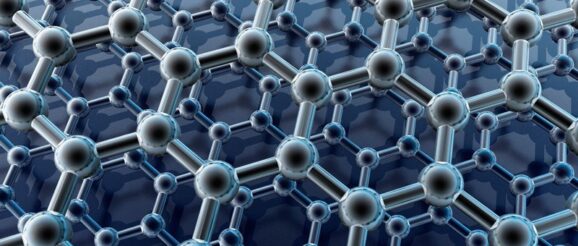Graphene Concrete: A Revolutionary Innovation in the Construction Sector

Graphene is a wonder material that holds the capacity to convert the oldest building materials into a greener and sustainable option. The incorporation of graphene in the concrete production process is being studied at Britain’s University of Exeter to develop a new composite material called graphene concrete. The final composite concrete obtained has twice the strength of traditional concrete.
Graphene is lighter than a feather and more conductive than copper. It has greater strength than steel and is slowly dominating steel-reinforced concrete products. This article explores the properties of graphene and its influence on concrete construction.
Graphene – The Miracle Material
Graphene is composed of carbon atoms arranged in a honeycomb lattice pattern. The structure is nearly transparent with one atom thickness. When used in concrete, the material imparts strength that is 200 times greater and makes the concrete six times lighter in comparison to conventional concrete. Hence, these properties of graphene help produce lightweight composite materials.
Graphene is a good conductor of heat and electricity. It absorbs about 2% of the light and is impermeable to hydrogen, helium, and other light gases.
Graphene in Concrete
Graphene is the world’s strongest man-made material with a tensile strength of 130 GPa and modulus of elasticity of 1 Pa. Graphene’s inherent strength helps regain the original shape of the material even after applying a 25% strain. It has dimensions smaller than 1 micron, making it perfect for mixing with cementitious binders, admixtures, and aggregates to obtain better concrete.
The researchers at the University of Exeter have devised a way to suspend flakes of graphene in water. This water is mixed with traditional concrete ingredients, cement, and aggregate. The whole process is inexpensive and compatible with modern construction requirements. The graphene additives are easily mixed with water and added to concrete. Hence, this does not require any additional equipment to handle.
Graphene-enhanced concrete is tested and found to meet the British and European standards for construction. It provides a 146% increase in compressive strength, a 70% increase in flexural strength, and a 400% decrease in permeability.
The incorporation of graphene in concrete would develop structures with increased durability.
Graphene in concrete allows for a reduction of about 50% of raw materials used in traditional concrete. It is reported to bring an appreciable reduction in cement content. The researchers state that this technology can result in 446kg/tonne reduction in carbon dioxide.
The Table-1 below shows the performance characteristics of the first graphene-added concrete product in the world, named Concrene.

Image Courtesy: Concrene
Advantages of Graphene Concrete
The three main solutions provided by graphene in concrete are in terms of volume, strength, and water resistance of concrete.
Applications of Graphene Concrete
The important applications of graphene concrete are:
Graphene has been combined with traditional concrete production for a research study conducted at the University of Exeter to develop a new composite material, called as graphene concrete.
Graphene has been combined with traditional concrete production for a research study conducted at the University of Exeter to develop a new composite material, called as graphene concrete.
Graphene-enhanced concrete is tested and found to meet British and European standards for construction. It provides a 146% increase in compressive strength, a 70% increase in flexural strength, and a 400% decrease in permeability.
Graphene-enhanced concrete is tested and found to meet British and European standards for construction. It provides a 146% increase in compressive strength, a 70% increase in flexural strength, and a 400% decrease in permeability.
The important application of graphene concrete is in the construction of precast staircase units, headwalls for pipes, septic, and water tanks.
The important application of graphene concrete is in the construction of precast staircase units, headwalls for pipes, septic, and water tanks.
